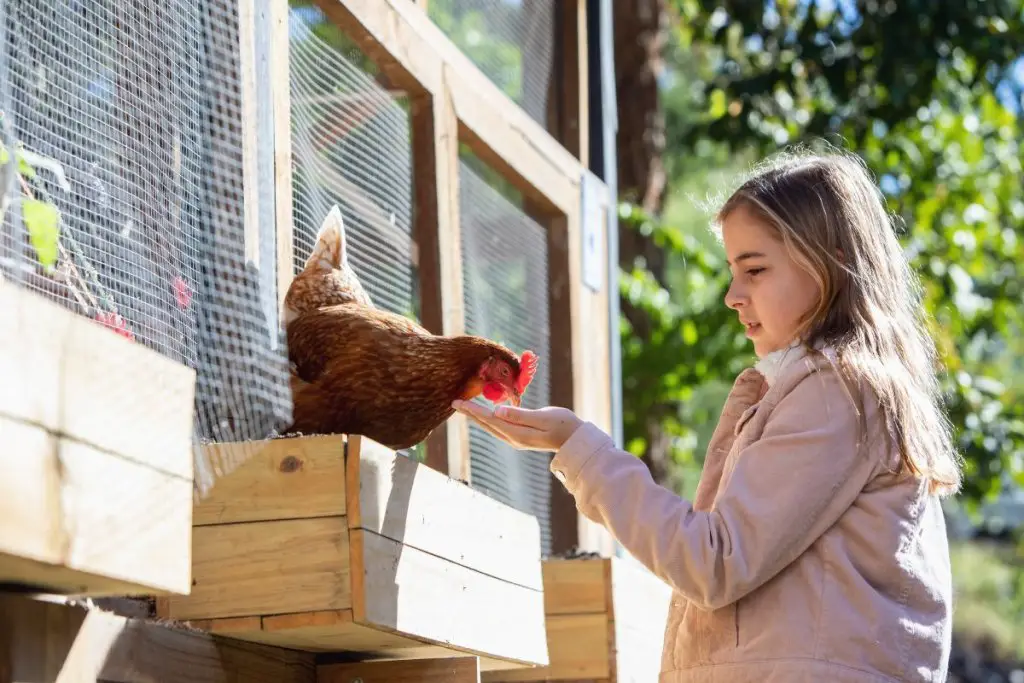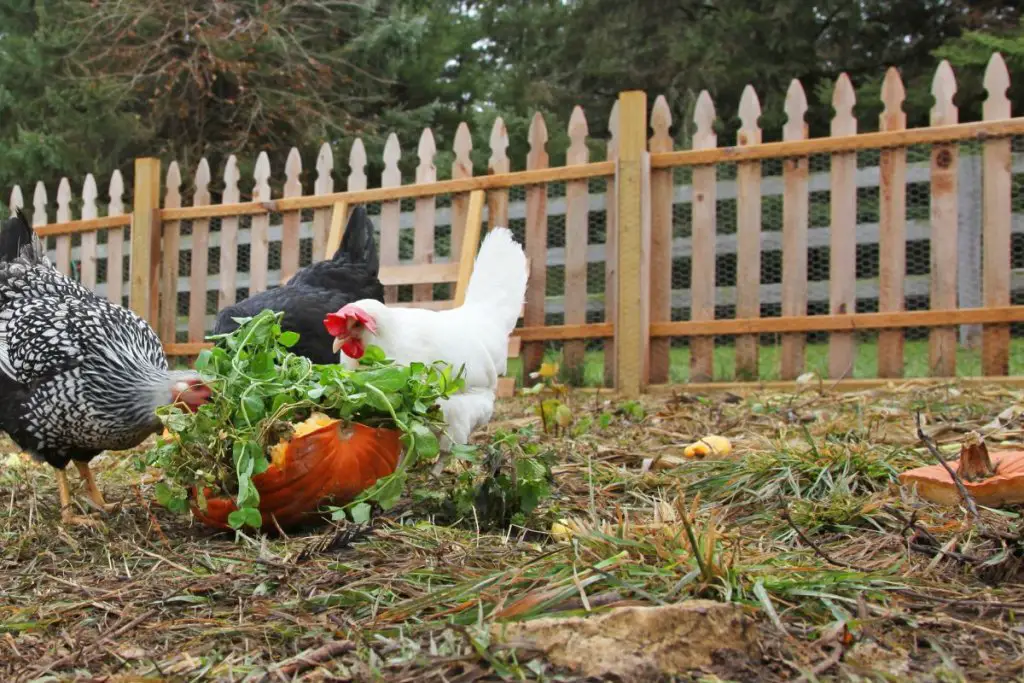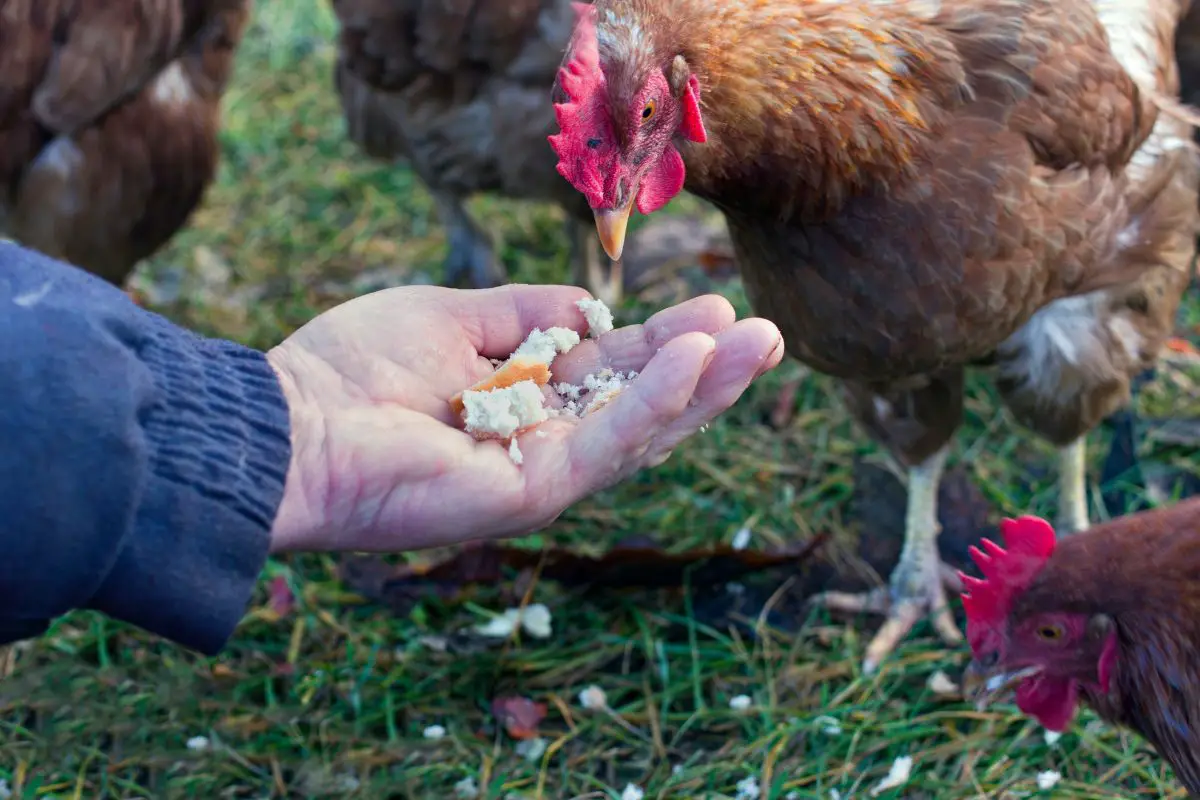Chickens can eat popcorn but only certain kinds and it has to be prepared in a specific way - otherwise, popcorn can be unhealthy and harmful. Chickens can only eat moderate amounts of popcorn too.
If you just got back from movie night and have a half bucket of popcorn, you may be tempted to throw a couple of handfuls of it outside for the chickens to eat. After all – chickens are omnivores and eat corn, so why shouldn’t they eat popcorn?
But hold on…
This article will cover how to safely provide popcorn to your chickens, the type of popcorn chickens can eat, and the dangers associated with popcorn that you should know before you decide to offer them this treat.
Table of Contents
What Types of Popcorn Are Safe for Chickens to Eat?
Plain popcorn where the popcorn kernels have all popped is called popped popcorn and is safe for chickens to eat in moderate amounts. This is the only kind of popcorn that is safe for your chickens, provided it has no seasoning and was not cooked in oil or fat.
Chickens cannot eat dried corn kernels because their digestive system cannot break them down, so unpopped kernels and unpopped popcorn should never be given to chickens.
Popped popcorn should only be given as an occasional treat and chicken owners should ensure that popcorn provided to their backyard chickens contains no additional additives such as sweeteners, or flavorings.
It should also not have seasoning such as salt – too much salt can cause kidney disease in chickens and lead to kidney stones.

Chickens should not be given butter popcorn, microwave popcorn, and other types of corn kernels that have had oils used in the cooking process because chickens cannot digest lipids properly. Butter is a dairy product and unfortunately dairy leads to excessive gas, causing bloating and diarrhea in chickens.
Popcorn can also be a choking hazard, so anytime you provide popcorn to your chickens, keep an eye on them to ensure they don’t accidentally choke.
Baby chickens in particular should not be fed popcorn because while hens and roosters can have it as an occasional treat, popcorn is not that nutritious compared to chick starters and you don’t want your baby chicks to fill up on foods that don’t help them grow.
You should also note that every kind of corn, including popcorn, can cause obesity if fed in excess.
How Should You Prepare Popcorn for Chickens?
If you feed chickens popcorn the best option is to prepare it yourself from scratch.
The first thing you will need to do is find plain unpopped popcorn kernels at the grocery store. They are usually stored with microwaveable versions in a see-through container.
You can then use a stovetop popper or a popcorn machine to cook the popcorn for you. Be sure you do not add any fat and allow the popcorn to pop from air and heat alone.
Once the popcorn has cooled (and you’ve removed any uncooked kernels) you can provide them to your chickens.
Is Popcorn a Healthy Snack for Chickens?
Popcorn that is properly prepared is something chickens can eat as a treat but it is not necessarily a healthy snack as it lacks nutritional value despite it being a whole grain and having a good amount of fiber.

Popcorn contains small amounts of vitamin a, vitamin k, magnesium and calcium, but popcorn is mostly a carbohydrate that doesn’t stand up to other healthier choices such as watermelon, bananas, or cucumbers which are nutrient-dense.
Summary
Feeding your chickens healthy foods that balance a chicken’s diet isn’t always easy which is why chickens need to primarily eat chicken feed (at least 90% of their diet) as it contains a proper balance of nutrition.
You can supplement a chicken’s feed with other foods, but they should never make up more than 10% of a chicken’s diet. It is not as nutritious as other foods and if fed too often, can cause a drop in egg production.

